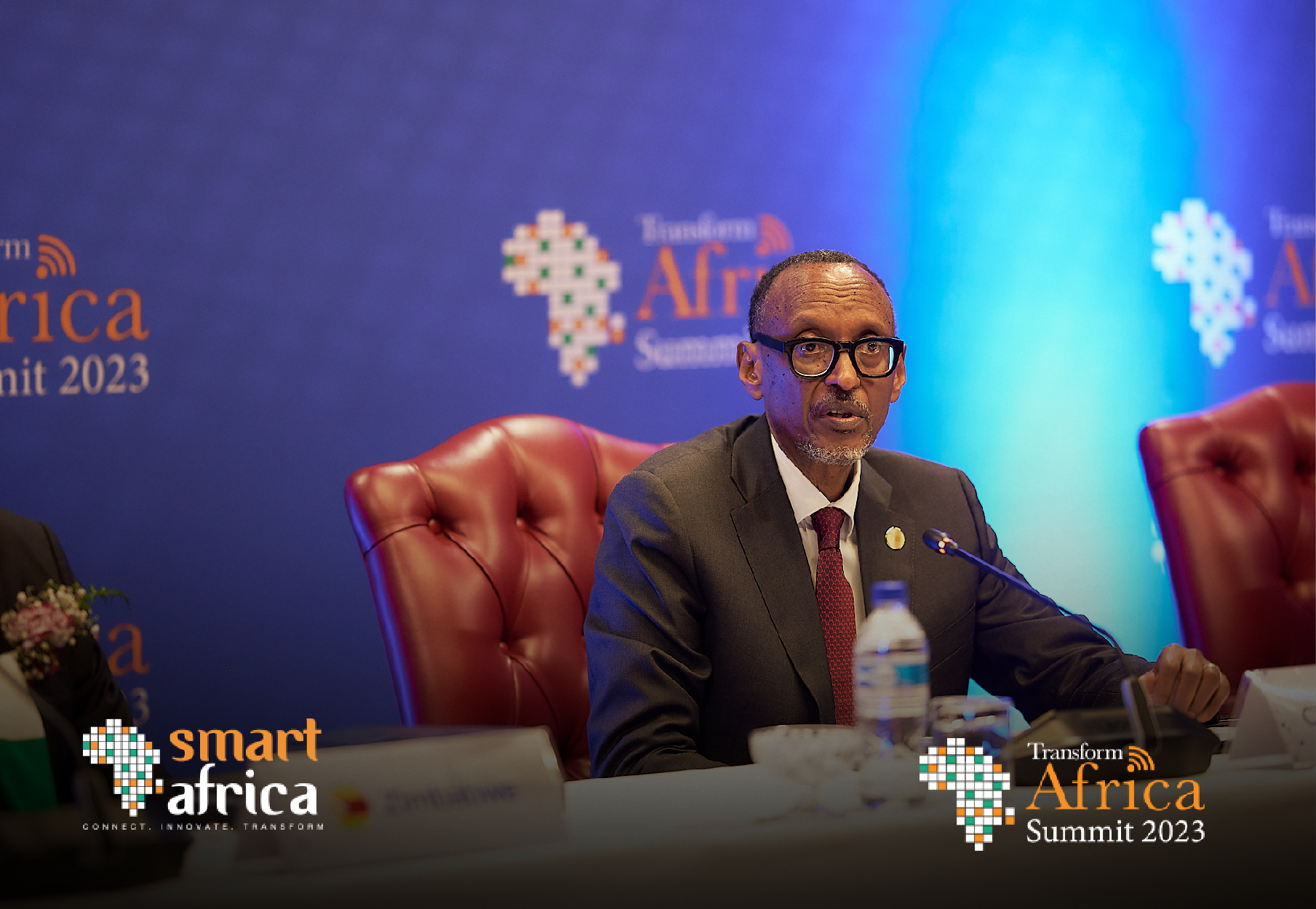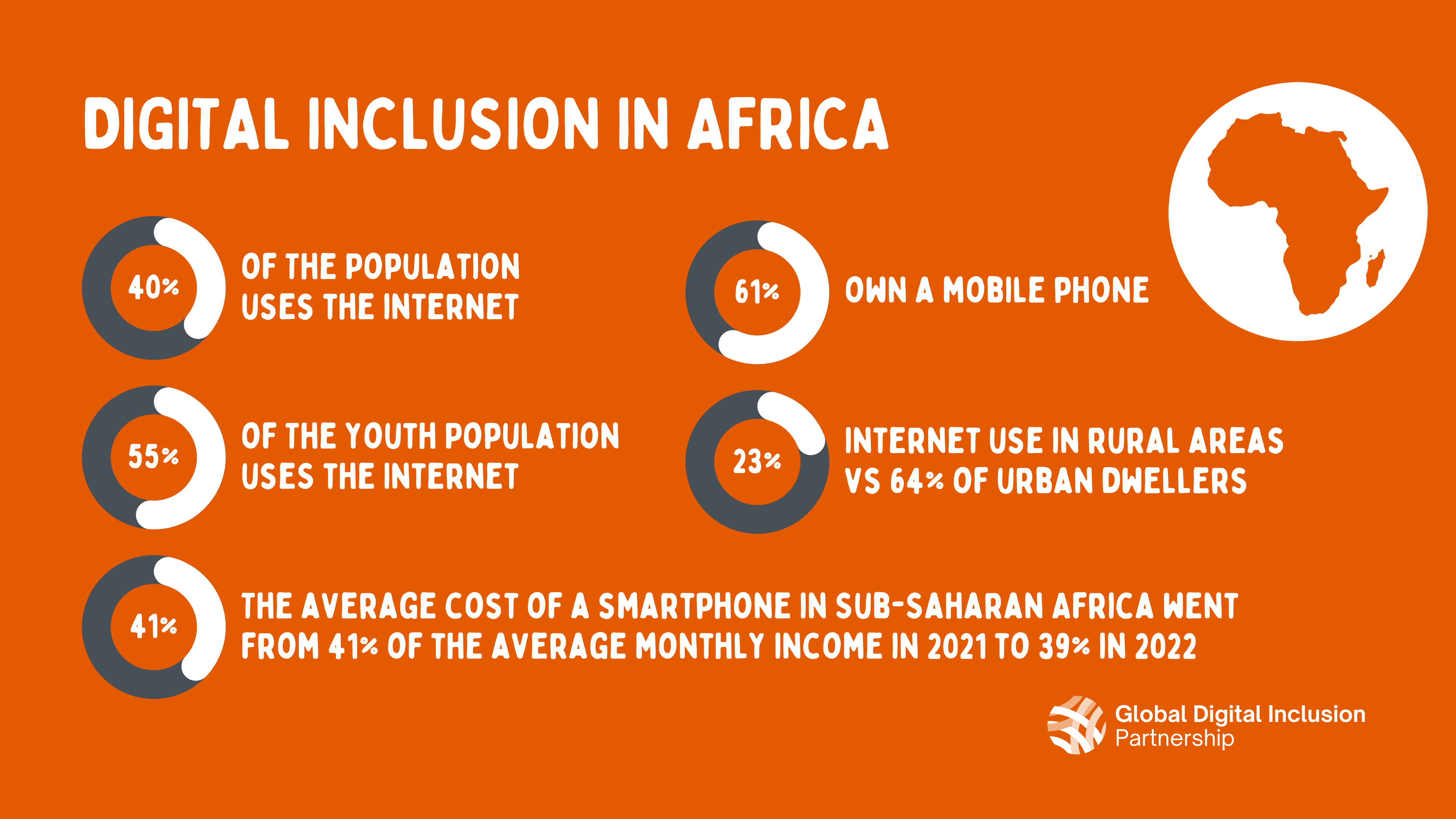Africa’s rising user gap was of topical concern at the Transform Africa Summit 2023 held in Victoria Falls, Zimbabwe, from April 26 to 28. Organized by Smart Africa, the summit is Africa’s leading annual forum bringing together global and regional leaders from government, business and international organizations to collaborate on new ways of shaping, accelerating and sustaining the continent’s ongoing digital revolution.

Talking about the more than sixty percent of Africans who have access to broadband but are not using it, Rwanda’s President Hon. Paul Kigame highlighted the importance of continuing efforts to advance affordability of both broadband and devices, as well as investing in digital skills and literacy.
Today, an estimated 5.3 billion people, or 66% of the world’s population, use the internet. However, in Africa, the average is just 40% of the population, making it the least connected region.
In 2021, this usage gap was estimated at 61% for Sub-Saharan Africa, representing the percentage of people covered by mobile broadband but not using it. However, now is not the time to retreat from digital infrastructure investment; instead, it is time to raise the bar and invest in both the digital infrastructure as well as stimulate demand through enabling policies for affordable devices and skills development, among a few, to ensure meaningful access for everyone.

When people are meaningfully connected, they can enjoy the kind of connectivity that gives them an opportunity to transform their lives in how they use their access to the internet for activities such as acquiring a new skill or language, searching for a job, building or expanding a business, or accessing healthcare
So while we have made progress in deploying infrastructure to cover 40% of Africa’s population, in most countries less than 15% of this connection is at a level that would ensure meaningful connectivity through a stable connection that’s available all the time with a minimum 4G speed.
By advancing the four pillars of meaningful connectivity, Africa has a stronger chance transforming its economies and unlocking a promising digital future for its young population.
In this post-Covid era, it is more clear that internet access alone is not enough. The quality of access is equally important to ensure smart development and innovation, including realizing the continent’s aspirations to grow its digital economies along with Smart Africa’s vision of transforming Africa into a single digital market.
There is an urgent need to double down and fast-track efforts to close the emerging inequality among the connected—between those with a basic connection and those who are meaningfully connected.
By advancing the four pillars of meaningful connectivity—4G-like speeds, smartphone ownership, daily use, and unlimited access—Africa has a stronger chance transforming its economies and unlocking a promising digital future for its young population.
About GDIP
The Global Digital Inclusion Partnership is a coalition of public, private, and civil society organizations working to bring internet connectivity to the global majority and ensure everyone is meaningfully connected by 2030. GDIP advances digital opportunities to empower and support people’s lives and agency, leading to inclusive digital societies.